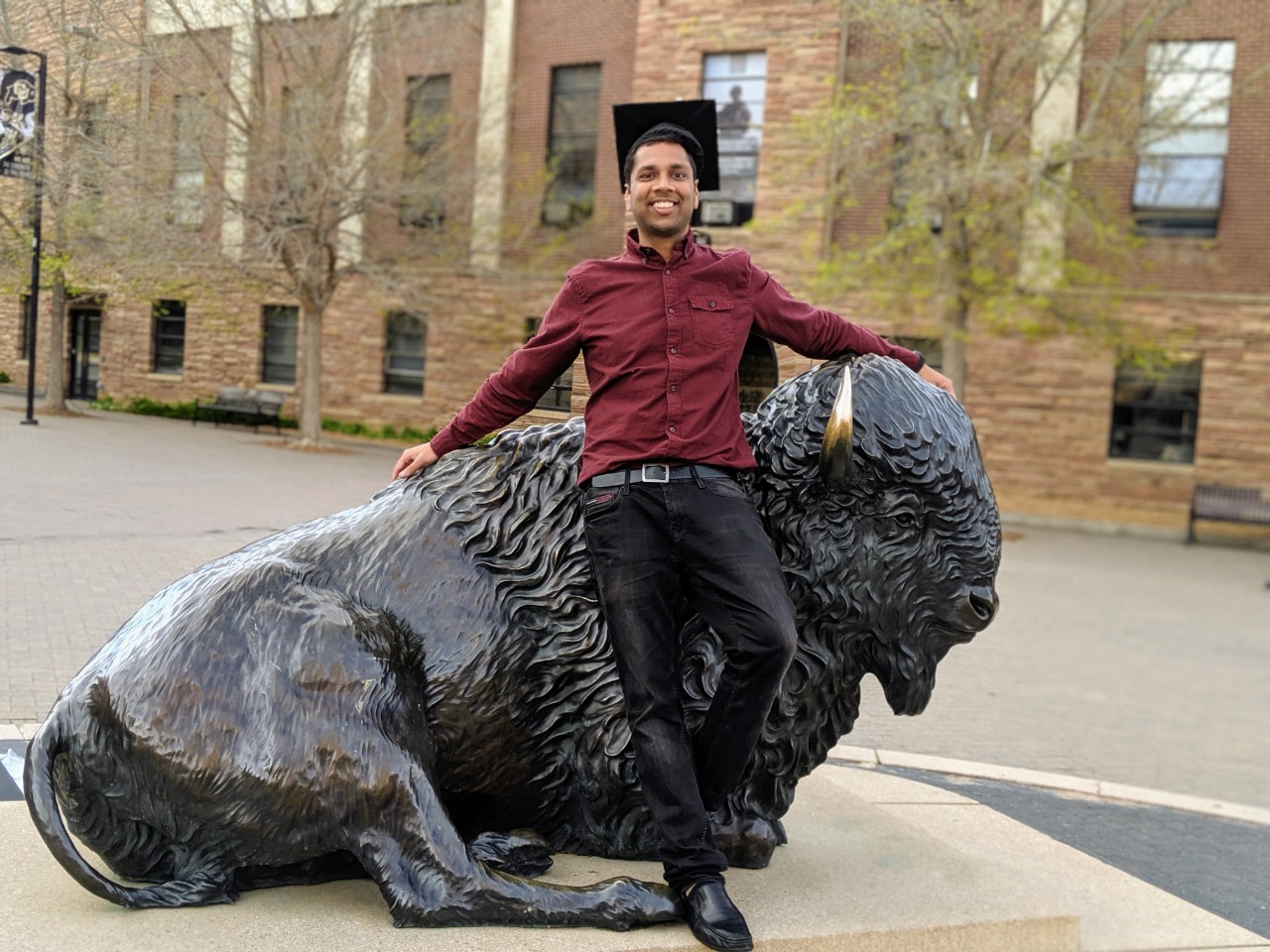Shivendra Agrawal

University of Colorado
Boulder, Colorado
About myself: I am a final year CS Ph.D. student with Prof. Bradley Hayes at CU Boulder. I am interested in Robotics, Accessibility, and Human Robotics Interaction (HRI) and unifying them to create real-world Assistive Technology. My thesis involves creating foundational methods that enable assistive systems to utilize rich social and semantic cues to support visually impaired individuals.
I am on the job market for a faculty position starting Fall 2026.
Other interests: I enjoy playing tennis a lot (like a lot!!). On good sunny days, I also like to bike and run in the lovely city of Boulder. (Bonus) Boulder Creek Path Fall view through my bike. I also like to explore local food and beverages.
Minor-flex - I have more than 59 millions views on my Google Map contributions and have received a rather vibrant pair of socks from Google. And no, that was all I ever got from them.
Research Abstract: Real-world environments are riddled with highly unstructured scenes, challenging lighting conditions, unpredictable dynamic agents, unmodeled dynamics, and variable conditions, making is hard for most research to translate to real-world setting. My thesis aims to bridge this gap by interpreting and utilizing implicit environmental context in the form of semantic and social cues. Through studies demonstrating socially preferred goal-seeking navigation guidance, precise manipulation for grasping in dense, cluttered scenes, and localization leveraging semantic environmental understanding, we establish foundational methods for generating context-aware assistance and lay critical groundwork for the future development of practical, scalable assistive robotic systems.
Research Summary:
-
Social Goal-Finding and Navigation:
Our first work in this series uses insights from psychology to locate socially preferred seats (seats with high privacy and low intimacy). It aims to help blind and visually impaired (BVI) people to participate in the nuances of seat selection in public settings like sighted people. Project page -
Grasping Guidance with Markov Decision Process:
Next work creates a system that can assist with an important sub-task in independent grocery shopping. Our system called ShelfHelp uses a novel computer vision algorithm to locate grocery items on a shelf and a Markov Decision Process-based fine-grain grasping guidance algorithm that issues verbal commands. Project page -
Semantic Monte Carlo Localization with minimal sensors:
Estimating the location of an autonomous agent in cluttered, quasi-static environments such as grocery stores is challenging. We introduce a novel semantic localization algorithm that parses a semantically rich scene (think quasi-static, densely-packed aisles of shelves) and fuses the information with depth to estimate the 2D pose of the system with low-cost sensors. Project page